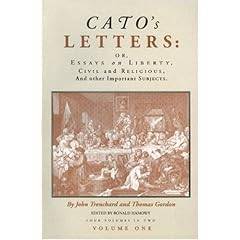ihopehefails
VIP Member
- Oct 3, 2009
- 3,384
- 228
- 83
- Thread starter
- Banned
- #41
A good example is the patriot act. I actually think that it might be constitutional even though some of the things it might allow might not be safe to allow our government to do but if it is constitutional then what right does the supreme court have to strike it down or to even say it is illegal for our government to do?
The constitution is a document regarding citizens- not just citizens appointed to government. There will always be new situations developing as life progresses - change is the nature of the human beast - if we as citizens CHOOSE as a whole to allow these situations to continue- than it is US that say the supreme court has that right.
One good thing in our society - we always have time to learn from the past and make a difference in the future. To accept one situation as "not fair" and react by sulking is not acting responsibly as a citizen of THIS nation. We are only hindered by our own inaction.
I'm not sure what you are trying to say but are you saying that the supreme court has the right to invalidate constitutionally legal laws?



